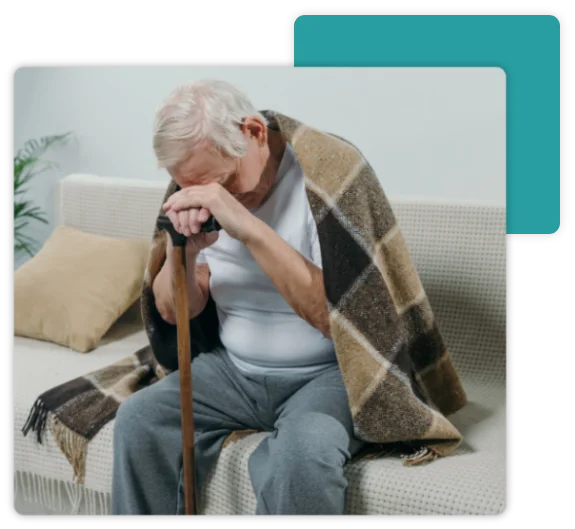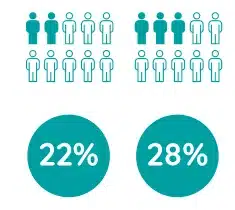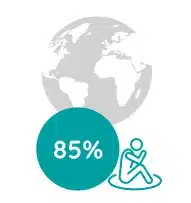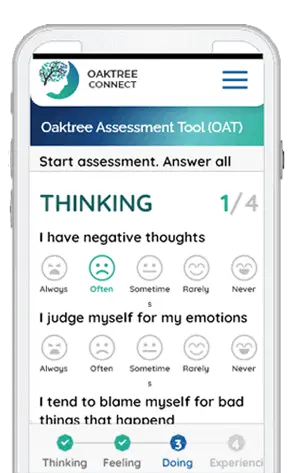Home » Older Adult Psychiatry » Depression
Depression
Physical health issues (disabilities or long-term illnesses), loss (death of partner or friends), loss of role (retirement, voluntary redundancy) or less disposable income are some of the triggers that cause a proportion of older adults to develop clinical depression.

Facts About Depression in Older Adults
Globally

People above 65+ years old people in the world have clinical depression: 22% of men and 28% of women, predicted to double by 2030.
UK

Depression in community in UK, 1 in 5 older adults , in Care Homes: 2 in 5 in care homes.
Additional

No treatment offered although older people show the highest suicide rates in almost all countries
Symptoms
- Intense constant sadness
- Lack of interest in everything
- Loss of sleep, sex drive, concentration
- Reduced appetite, weight loss
- Lack of motivation
- Neglecting self care
- Intense irrational guilt
- Suicidal Thoughts
Unfortunately, older adults may fail to recognize the symptoms of depression, or may not take the steps to get the help they need. Assuming that you have a good reason to be down or it is part of aging, being isolated or failing to recognize that physical complaints may be signs of depression and reluctance to talk about feelings are some reasons for this.
Although some symptoms of depression in older adults are similar to a younger person, many are dissimilar and complex. Symptom profile may be laden with anxiety, health related symptoms and present with somatic preoccupation (appetite, sleep-wake cycle) and lack of sexual desire. In severe cases intention to self-harm is usually profound.

Treatments
The good news is that seeking the correct treatment and support will help most people with depression to make a full recovery. There are a variety of effective treatments for depression including:
Physical treatments:
- Antidepressant Medication
- Repetitive Transcranial Magnetic Stimulation (rTMS)
Psychological therapies:
- Cognitive behavioural therapy (CBT)
- Compassion Focused Therapy
Attentive Symptom Monitoring
- Minimise sensory deprivation by prodigy or ensuring access to – hearing aids, spectacles, improving lightening, providing enhanced-contrast material, larger type faces or objects.
- Hospital admission and treatment- A minority of older adult with depression may need hospital admission due severity of the illness or seriousness of the risks (e.g. not eating or drinking, or trying to end their life) with the view to provide safe environment, consistency of supervision and optimization of medication
- Self help- If you are feeling low, talk to somebody and seek help at the earliest. Remember depression is an illness not a sign of weakness.
Other
- Being physically active, pursuing hobbies and staying connected with family and friends help mood.
- Eat and drink well, although these may appear as a chore when depressed.
- Avoid alcohol as it can exacerbate depression and may react with antidepressants or other medications.
- Get more sleep.

Oaktree Assessment Tool
 Our Oaktree assessment tool (OAT) can help you decide whether to seek diagnosis and medical treatment from a Psychiatrist online, to seek talking therapy, or if self-help may suffice. It is not a diagnostic test.
Our Oaktree assessment tool (OAT) can help you decide whether to seek diagnosis and medical treatment from a Psychiatrist online, to seek talking therapy, or if self-help may suffice. It is not a diagnostic test.
Contact Us
To book an online mental health assessment appointment with Private Psychiatrists, Private Psychologists and Private TherapistsWe aim to respond within one working day
